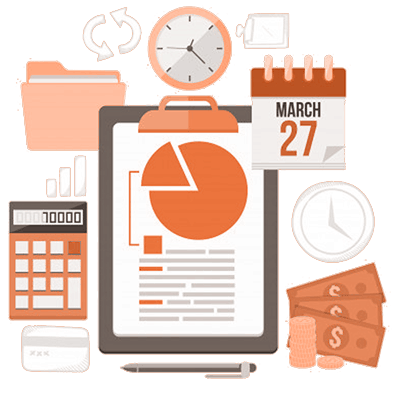Everything you need to know about the UK Tax Return submission
UK Tax Return Submissions
As a UK taxpayer, it's important to understand the deadlines and guidelines for submitting your tax return. Filing your tax return on time and accurately can help you avoid penalties and ensure that you pay the correct amount of tax.
In this blog article, we'll take a look at the timelines, guidelines, and recommendations for UK tax return submission.
What is a UK tax return?
A tax return is a document that you submit to HM Revenue and Customs (HMRC) each year, which provides details of your income, gains, and expenses for the tax year. This information is used to work out your tax liability, and it's your responsibility to ensure that your tax return is accurate.
When do I need to submit my tax return?
The tax year runs from 6 April to 5 April the following year, and you must submit your tax return by 31 January following the end of the tax year. For example, if you're filing a tax return for the 2021/22 tax year, you must submit it by 31 January 2023.
If you miss the deadline, you'll face an automatic penalty of £100, which increases the longer you leave it. If you're more than three months late, you'll face a penalty of £10 per day for up to 90 days, and after that, the penalty will be the higher of £300 or 5% of the tax due.
How do I submit my tax return?
You can submit your tax return online using HMRC's Self Assessment service. You'll need to register for Self Assessment if you haven't already done so, and you'll receive a Unique Taxpayer Reference (UTR) and an activation code by post.
Once you've activated your account, you can complete your tax return online. You'll need to provide details of your income, gains, and expenses for the tax year, as well as any tax you've already paid.
You can also submit a paper tax return, but the deadline for this is earlier - 31 October following the end of the tax year. If you're submitting a paper tax return, you'll need to complete the form and send it to HMRC by post.
What records do I need to keep?
It's important to keep accurate records of your income, gains, and expenses, as well as any tax you've paid. This will make it easier to complete your tax return and ensure that you pay the correct amount of tax.
You should keep records of:
Employment income
Self-employed income
Rental income
Investment income
Capital gains
Pension contributions
Charitable donations
Business expenses
You should keep these records for at least six years after the end of the tax year.
What are the penalties for incorrect tax returns?
If you submit an incorrect tax return, you may face penalties and interest charges. The amount of the penalty will depend on the severity of the error and whether it was deliberate or not.
If you make an innocent mistake, you may face a penalty of up to 30% of the tax due. If you make a deliberate error, the penalty can be up to 100% of the tax due, and you may face criminal prosecution.
Conclusion
Submitting your UK tax return on time and accurately is important to ensure that you pay the correct amount of tax and avoid penalties. You should keep accurate records of your income, gains, and expenses, and submit your tax return by 31 January following the end of the tax year.
If you're unsure about any aspect of your tax return, please speak to our qualified tax advisors. By taking the time to understand the guidelines and recommendations for UK tax return submission, you can ensure that you stay compliant and maximise your tax efficiency.
Visit our Tax Return and Return and Tax Refund page for more information.
Request a non-obligational quote from the section below.
Other blog posts that you might be interested in
- Making Tax Digital for Income Tax (MTD for ITSA): Simple Guide for Self-Employed & Landlords
- Self-Employed? Here’s What You Can Deduct in 2025
- Making Tax Digital for Income Tax (MTD for ITSA): What It Means and How We Can Help You Stay Compliant
- The Early Bird’s Guide to Maximising Your UK Tax Return for 2024/2025
- Late Tax Return Penalties and Appeals - What is it and how to deal with it?
- How to Register as Self-Employed in the UK: A Step-by-Step Guide
- Ultimate Guide to Self-Employed Mortgages in the UK: Navigating Tax Returns, SA302, and More
- CIS Registration UK: Everything You Need to Know About
- UTR Registration and Cancellation: What You Need to Know
- How Much Can I Earn Before Paying Tax from 2023/2024?

